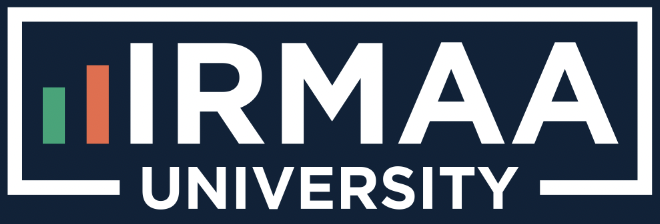
Planning for health care costs in retirement is one of the most important factors in preparing a practical financial retirement plan. The importance of taking your time to get the numbers right and the facts straight simply cannot be stressed enough. Retirement health care costs can be tricky and they can be catastrophic. We are here to help you adequately prepare for what the future may hold for you in retirement, in terms of unavoidable health care costs.
Hopefully reviewing this text and taking time to educate yourself on the in’s and out’s of retirement health care costs will prevent any unfortunate mishaps that may threaten to derail your retirement plan in the future.
Create A Budget To Account For Retirement Health Care Costs
One of the most important steps that you can take in your retirement planning is to make a budget that accounts for retirement health care costs. When preparing your budget take care to add a line item for “health care costs.”
This line will include all fixed expenses, such as Medicare premiums. However, it should take into consideration inflation, which rises much quicker in health care – at a rate of about 7 percent on average.
Also, make sure that you include a hefty emergency fund for unforeseen medical expenses such as a $8,000 dental bill or vision emergency. Remember that Medicare does not cover either of these.
Select The Most Logical Medicare Plan To Help You Pay For Retirement Health Care Costs
The Medicare Part C plans, or medical advantage plans, are generally more cost-effective than combining Parts A, B & C. The best thing about selecting a medical advantage plan is that thanks to recent legislation, there is now a ceiling that limits the out-of-pocket expense for beneficiaries to $6,700 annually. This offers a level of predictability that you can factor into your budget.
http://www.healthcareretirementplanner.com/planning-for-health-care-costs-in-retirement/Fill In The Gaps When Planning For Health Care Costs In Retirement
If you select a traditional Medicare Plan (A or B) be smart and purchase a supplementary plan to fill the gaps where Medicare does not cover. These private Medigap supplemental insurance policies are designed to pay for what Medicare doesn’t offer you slight peace of mind in terms of your retirement health care costs.
Annuities Can Help To Cover Retirement Health Care Costs
After you complete your retirement budget financial plan you may find that you are going to need additional income. Do not panic, it happens all the time. One option that you have is to buy an annuity to fill in the shortfall. An example would be a deferred fixed annuity. With a deferred fixed annuity, you figure out the deficit in your budget, or how much more income you will need monthly, hand over a lump sum to an insurance company and come your start date you will begin receiving monthly payments.
Use Life Insurance To Cover Retirement Health Care Costs When Needed
If you get in a bind – say you suddenly have a $10,000 dental bill that you cannot afford to pay – you can tap into your life insurance policy to help cover the costs. Most all life insurance policies will allow you to take policy loans or partial withdrawals in times of need. However, beware that if you do not repay the loan the full amount will be deducted from your total death benefit, reducing the amount you will leave for your loved ones.
Cut Your Health Care Spending On Retirement Health Care Costs
Be diligent when it comes to your health care in retirement. Do your homework and take advantage of free services. Thanks to the Affordable Care Act, Medicare now offer 20 free of costs preventative services. Such services that are free of costs to you will be certain vaccines, annual wellness exams, health screening for selection chronic illnesses and annual prostate and breast exams.
When Planning For Health Care Costs In Retirement Consider Opening A HSA Account
It is a good idea to build a stash of cash if you can while you are young and employed. You can open a HSA account through a brokerage firm or bank that will allow you to make monthly tax-deductible contributions to up to $3,300 for singles and $6,550 for a family, plus an additional $1,000 if you are 55 or older. In many instances, your employer may also match contributions.
As you continue to contribute annually, your money as it sits in the HSA, will sit tax-free. Anytime you need, you can tap into the account, should you find it necessary. However, why not just let it grow? Think about it this way – if you and your spouse begin contributing at age 55 and drop in $7,550 annually until retirement (at age 65) you will have $112,000 to cover retirement health care costs.
Do You Know What Your Estimated Retirement Health Care Costs Might Be?
Are you aware of what your estimated retirement health care costs might be? If you answered no, do not feel shameful, as you are far from alone. A Nationwide Survey “Health Care Costs in Retirement” Consumer Study 2012, revealed that 4 out of 5 Americans that had completed retirement financial planning had no estimate of what their health care could potentially cost them in retirement.
Getting an estimate could not be simpler! Use our FREE online calculator and within a matter of minutes have a reliable estimate able to assist you in planning for health care costs in retirement, therefore offering you the peace of mind that comes along with financial security.
What is HealthcareRetirementPlanner.com
Healthcare Retirement Planner (HRP) is a comprehensive solution that helps identify potential problem areas in a retirement plan and design options to minimize the problem.
On an ongoing basis, HRP conducts research and aggregates all data to be used in its analysis algorithm. Pulling from areas such as The Congressional Budget Office, Centers for Medicare and Medicaid, polling individual insurance carriers across the United States along with private research firms, and positions HRP as having the most accurate information and calculations available.
Within the calculation process there are many variables that need to be considered, as the solutions are customized to each individual’s retirement plan. Variables that are required to analyze financial situations include, but are not limited to: age, gender, location, overall retirement income, types of retirement income, inflation and COLA. HRP has simplified this process.
The process of using HRP is straight forward. Simply by answering a few simple demographic questions, entering retirement asset information and income, along with assorted growth rates, you are supplied with a detailed year by year analysis that projects out 20+ years as to how the investors’ current financial plan will be impacted by their Medicare costs and the impact on their Social Security benefit.
Who is HealthcareRetirementPlanner.com?
We are comprised of Financial Professionals, Medicare Specialists, Technology Experts and the foremost authorities on how this one cost will affect your bottom line especially when your health is on the line.
There are many financial institutions that do tremendous work when it comes to asset building, planning for college or creating stock/bond/mutual fund portfolios, but addressing concerns of affording health care costs…well for that, there is us.
Healthcare Retirement Planner was created with one purpose in mind: to provide data, education and tools necessary to help the financial industry create better financial futures and to plan for one of the biggest expenses in not only retirement, but life – their health.
In a time where health costs dominate the media, the political landscape and your bottom line, retirement planning with all of the facts have never been more important.
Origin of Our Data for Healthcare Cost in Retirement
On an ongoing basis, HRP conducts research and aggregates all Healthcare data to be used in its analysis algorithm. Pulling from areas such as The Congressional Budget Office, Centers for Medicare and Medicaid, polling individual insurance carriers across the United States along with private research firms, and positions HRP as having the most accurate Retirement information and calculations available.
